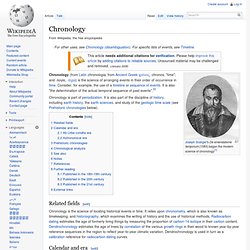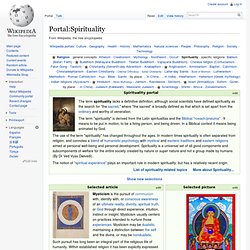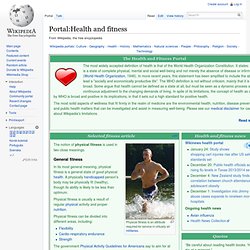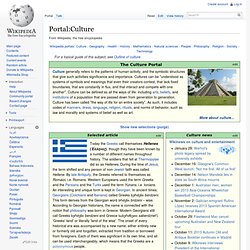

Chronology. Joseph Scaliger's De emendatione temporum (1583) began the modern science of chronology[1] Chronology (from Latin chronologia, from Ancient Greek χρόνος, chronos, "time"; and -λογία, -logia) is the science of arranging events in their order of occurrence in time.

Consider, for example, the use of a timeline or sequence of events. It is also "the determination of the actual temporal sequence of past events".[2] Chronology is part of periodization. It is also part of the discipline of history, including earth history, the earth sciences, and study of the geologic time scale (see Prehistoric chronologies below). Related fields[edit] Chronology is the science of locating historical events in time. Calendar and era[edit] The familiar terms calendar and era (within the meaning of a coherent system of numbered calendar years) concern two complementary fundamental concepts of chronology. Social sciences. Social science is an academic discipline concerned with society and the relationships among individuals within a society.
It includes anthropology, economics, political science, psychology and sociology. In a wider sense, it may often include some fields in the humanities[1] such as archaeology, history, law, and linguistics. The term may however be used in the specific context of referring to the original science of society, established in 19th century, sociology (Latin: socius, "companion"; Greek λόγος, lógos, "word", "knowledge", "study. "). Émile Durkheim, Karl Marx and Max Weber are typically cited as the principal architects of modern social science by this definition.[2] Positivist social scientists use methods resembling those of the natural sciences as tools for understanding society, and so define science in its stricter modern sense.
Portal:Technology. Portal:Society. Portal:Spirituality. From Wikipedia, the free encyclopedia The term spirituality lacks a definitive definition, although social scientists have defined spirituality as the search for "the sacred," where "the sacred" is broadly defined as that which is set apart from the ordinary and worthy of veneration.

The term "spirituality" is derived from the Latin spiritualitas and the Biblical "roeach/pneuma" . It means to be put in motion, to be a living person, and being driven. In a Bibilical context it means being animated by God. The notion of "spiritual experience" plays an important role in modern spirituality, but has a relatively recent origin.
Such pursuit has long been an integral part of the religious life of humanity. In the contemporary usage "mysticism" has become an umbrella term, conflated with spirituality and esotericism. Practices associated with mysticism include meditation and contemplative prayer. Spirituality-related topics Purge server cache. Portal:Religion. Portal:Philosophy. Portal:Mathematics. Portal:Science. Edit The Science Portal Science is formed from methodical study of nature stemming from testable explanations and predictions.

An older and closely related current meaning emerged from Aristotle, whereby "science" referred to the body of reliable knowledge that is logically and rationally explained (see "History and etymology" section below). Since classical antiquity, science as knowledge was closely linked to philosophy. In the early modern era the two words, "science" and "philosophy", were sometimes used interchangeably in the English language. Ever-evolving, "science" is, more modernly, a term referring to the pursuit of knowledge, and not the knowledge itself.
Currently, there are both hard (e.g, biological psychology) and soft science (e.g., social psychology) fields within the discipline. Cite error: There are <ref> tags on this page, but the references will not show without a {{reflist}} template (see the help page). Portal:History. Portal:Health and fitness. Physical fitness is an attribute required for service in virtually all militaries.

The notion of physical fitness is used in two close meanings. General fitness In its most general meaning, physical fitness is a general state of good physical health. A physically handicapped person's body may be physically fit (healthy), though its ability is likely to be less than optimum. Physical fitness is usually a result of regular physical activity and proper nutrition. Physical fitness can be divided into different areas, including: The government Physical Activity Guidelines for Americans say to aim for at least 2 hours and 30 minutes of aerobic activity that requires moderate effort each week. Task-oriented fitness A person may be said to be physically fit to perform a particular task with a reasonable efficiency, for example, fit for military service. Military-style In recent years, Military-style fitness training programs have become increasingly popular among civilians.
Definition Cholesterol. Portal:Geography. Portal:Current events. Portal:Sports and games. Portal:Sustainable development. Portal:Culture. From Wikipedia, the free encyclopedia For a topical guide of this subject, see Outline of culture Culture generally refers to the patterns of human activity, and the symbolic structures that give such activities significance and importance.

Cultures can be "understood as systems of symbols and meanings that even their creators contest, that lack fixed boundaries, that are constantly in flux, and that interact and compete with one another". Culture can be defined as all the ways of life: including arts, beliefs, and institutions of a population that are passed down from generation to generation. Culture has been called "the way of life for an entire society". Today the Greeks call themselves Hellenes (Έλληνες), though they have been known by a number of different names throughout history. Purge cache. Portal:Arts. Portal:Contents/Portals. Portal:Contents. Wikipedia editors have organized the vast content of the encyclopedia in several different "table of contents" and other forms for browsing.

This page lists: Curated article collections – The most important articles on the most important topicsReference collections – Reference lists, timelines, glossaries, bibliographies, and discographiesSpecial format collections – Portals, books, and spoken audioComplete collections of articles – For when you want to see everything Wikipedia has on a topicCollections of articles by quality or popularity Curated article collections Overview articles Overview articles summarize in prose a broad topic like biology, and also have illustrations and links to subtopics like cell biology, biographies like Carl Linnaeus, and other related articles like Human Genome Project. Portal:Contents/Overviews lists overview articles from all areas of knowledge in a single page. Outline pages Third-party classification systems Most important articles for editors List pages. The free encyclopedia.